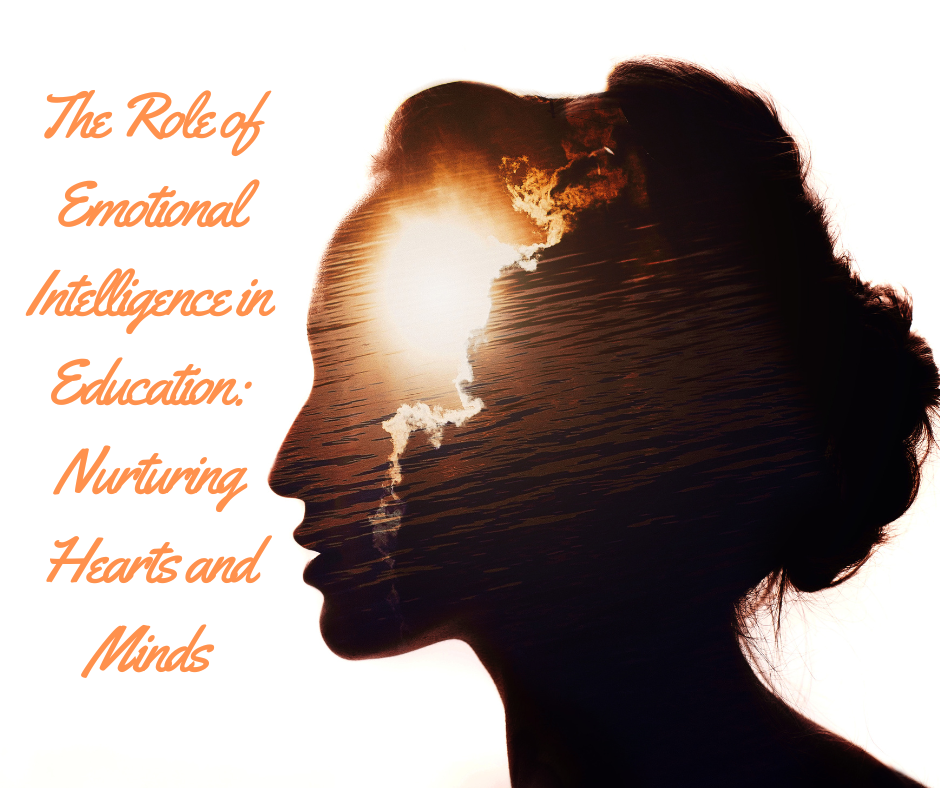The Role of Emotional Intelligence in Education: Nurturing Hearts and Minds
In the ever-evolving landscape of education, one key factor often takes center stage: academic achievement. While grades and test scores are undoubtedly important, there’s a fundamental aspect of learning that tends to be overlooked—emotional intelligence (EI). This blog explores the profound impact that emotional intelligence has on education, both in the classroom and in preparing students for life beyond academia.
The Basics of Emotional Intelligence:
Emotional intelligence is the ability to recognize, understand, manage, and effectively use one’s emotions, as well as the emotions of others. It encompasses skills such as empathy, self-awareness, self-regulation, and interpersonal communication. In the context of education, emotional intelligence plays a crucial role in shaping not just academic success, but also personal growth and well-being.
- Creating Positive Learning Environments:
Emotional intelligence helps educators establish safe and inclusive classrooms where students feel comfortable expressing themselves. When students are free from fear and judgment, they are more likely to engage in discussions, ask questions, and take intellectual risks.
- Enhancing Communication Skills:
Effective communication is a cornerstone of education. Students with high EI are better equipped to express their thoughts and feelings clearly, listen actively to others, and resolve conflicts peacefully. These skills are not only beneficial in the classroom but also in future careers and personal relationships.
- Emotion Regulation and Stress Management:
The demands of the modern education system can be overwhelming, leading to stress and anxiety. Teaching students how to recognize and manage their emotions can help them cope with academic pressures, resulting in improved mental well-being and performance.
- Empathy and Social Awareness:
Empathy, a critical component of emotional intelligence, encourages students to understand and respect diverse perspectives. This fosters a culture of tolerance and inclusivity, preparing students to thrive in a multicultural world.
- Self-Motivation and Goal Setting:
Emotionally intelligent individuals tend to be more motivated and resilient in the face of setbacks. They set meaningful goals and persevere through challenges, traits that are essential for academic success and life achievement.
- Preparation for Real-World Challenges:
Beyond academic knowledge, emotional intelligence equips students with the skills necessary to navigate the complexities of the real world. In the workplace, individuals with high EI are often better leaders, collaborators, and problem solvers.
Practical Strategies for Incorporating EI in Education:
- Social-Emotional Learning (SEL) Programs:
Many schools have adopted SEL programs that explicitly teach emotional intelligence skills. These programs provide structured opportunities for students to develop their emotional intelligence in a supportive environment.
- Teacher Training:
Educators who understand and model emotional intelligence are more likely to cultivate it in their students. Teacher training in EI can have a ripple effect on the classroom culture.
- Integration into Curriculum:
Incorporating EI into the curriculum through activities, discussions, and projects helps students apply these skills in real-life scenarios.
Conclusion:
As we continue to advance in the realm of education, it’s vital not to overlook the importance of emotional intelligence. It’s not just a soft skill; it’s a fundamental aspect of human development that impacts academic success, personal growth, and future success in a rapidly changing world. By nurturing emotional intelligence in our students, we prepare them not only to excel academically but also to thrive in all aspects of life. As educators, parents, and mentors, we have a crucial role to play in helping students develop their emotional intelligence and become well-rounded, resilient individuals.

